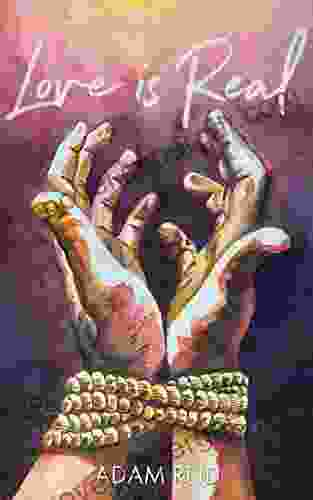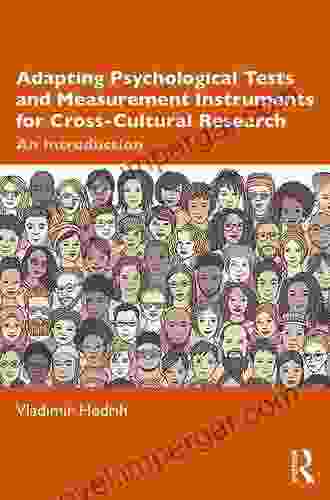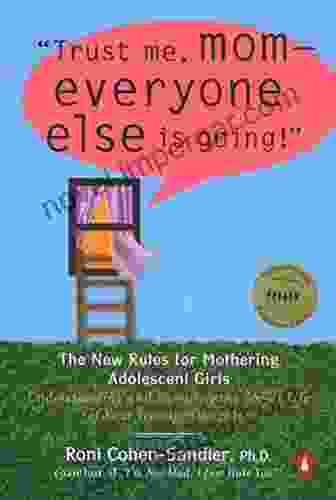Adapting Psychological Tests and Measurement Instruments for Cross-Cultural Contexts

Psychological tests and measurement instruments are essential tools for assessing and understanding human behavior. However, these tools are often developed and validated within specific cultural contexts, which raises concerns about their validity and reliability when used across different cultures. To address these concerns, researchers have developed guidelines and methods for adapting psychological tests and measurement instruments for cross-cultural contexts.
5 out of 5
| Language | : | English |
| File size | : | 3834 KB |
| Text-to-Speech | : | Enabled |
| Screen Reader | : | Supported |
| Enhanced typesetting | : | Enabled |
| Word Wise | : | Enabled |
| Print length | : | 202 pages |
Challenges of Cross-Cultural Adaptation
Adapting psychological tests and measurement instruments for cross-cultural contexts is a complex and challenging process. Several factors can affect the validity and reliability of these tools across cultures, including:
- Language Differences: Language barriers can lead to misunderstandings and errors in the interpretation of test items.
- Cultural Values and Beliefs: Cultural values and beliefs can influence how individuals respond to test items, potentially affecting the validity of the results.
- Measurement Equivalence: Ensuring that the test measures the same construct across cultures is critical for establishing measurement equivalence.
- Cultural Bias: Tests may contain items that are inadvertently biased towards a particular culture, leading to unfair or inaccurate results.
Guidelines for Cross-Cultural Adaptation
To ensure the validity and reliability of psychological tests and measurement instruments in cross-cultural contexts, researchers have developed a set of guidelines for adaptation:
- Establish a Cross-Cultural Team: A team of experts from both the source and target cultures should be involved in the adaptation process.
- Translate and Back-Translate: The test should be carefully translated into the target language and then back-translated into the original language to check for accuracy.
- Cultural Equivalence Analysis: Conduct a thorough analysis to determine whether the test items are culturally equivalent across the different cultures.
- Pilot Testing: Conduct pilot testing in the target culture to assess the understanding and validity of the test items.
- Standardization and Norming: Develop norms and standards for the test in the target culture to ensure that the results can be interpreted accurately.
Case Studies and Examples
Several successful examples demonstrate the application of cross-cultural adaptation guidelines in practice:
- Translation and Adaptation of the MMPI-2: The Minnesota Multiphasic Personality Inventory-2 (MMPI-2) has been translated and adapted for use in over 50 countries, with meticulous attention to cultural sensitivity and equivalence.
- Adapting the Wechsler Intelligence Scale for Children (WISC) for Chinese Children: The WISC was adapted for use in China, considering cultural differences in cognitive abilities and educational experiences.
- International Personality Item Pool (IPIP): The IPIP is a large-scale project that provides translated and validated personality items in multiple languages, facilitating cross-cultural comparisons.
Benefits of Cross-Cultural Adaptation
Adapting psychological tests and measurement instruments for cross-cultural contexts offers several benefits:
- Increased Accuracy and Validity: Adaptation ensures that tests measure the same constructs across cultures, reducing bias and improving accuracy.
- Enhanced Cross-Cultural Research: Adaptation enables researchers to conduct meaningful comparisons and generalizations across diverse populations.
- Cultural Sensitivity: Adaptation shows respect for cultural differences and avoids imposing Western norms on other cultures.
- Improved Cultural Understanding: Cross-cultural adaptation helps researchers better understand the similarities and differences in human behavior across cultures.
Adapting psychological tests and measurement instruments for cross-cultural contexts is a crucial step for conducting valid and reliable research. By following established guidelines and considering cultural factors, researchers can ensure that these tools effectively assess and compare psychological phenomena across diverse populations. Cross-cultural adaptation promotes cultural sensitivity, facilitates cross-cultural research, and ultimately enhances our understanding of human behavior within a global context.
5 out of 5
| Language | : | English |
| File size | : | 3834 KB |
| Text-to-Speech | : | Enabled |
| Screen Reader | : | Supported |
| Enhanced typesetting | : | Enabled |
| Word Wise | : | Enabled |
| Print length | : | 202 pages |
Do you want to contribute by writing guest posts on this blog?
Please contact us and send us a resume of previous articles that you have written.
 Book
Book Novel
Novel Page
Page Chapter
Chapter Text
Text Story
Story Genre
Genre Reader
Reader Library
Library Paperback
Paperback E-book
E-book Magazine
Magazine Newspaper
Newspaper Paragraph
Paragraph Sentence
Sentence Bookmark
Bookmark Shelf
Shelf Glossary
Glossary Bibliography
Bibliography Foreword
Foreword Preface
Preface Synopsis
Synopsis Annotation
Annotation Footnote
Footnote Manuscript
Manuscript Scroll
Scroll Codex
Codex Tome
Tome Bestseller
Bestseller Classics
Classics Library card
Library card Narrative
Narrative Biography
Biography Autobiography
Autobiography Memoir
Memoir Reference
Reference Encyclopedia
Encyclopedia Sandra Land
Sandra Land Seymour M Hersh
Seymour M Hersh Rob Desalle
Rob Desalle Savannah Smoke
Savannah Smoke Valeria Ray
Valeria Ray Richard Sugg
Richard Sugg Sarah Beth Aubrey
Sarah Beth Aubrey Roy Osing
Roy Osing Sorpong Peou
Sorpong Peou Stana Martin
Stana Martin Veronica Boutelle
Veronica Boutelle Steve Norder
Steve Norder Tracy Mclaughlin
Tracy Mclaughlin Robert Rite
Robert Rite Robert Dallek
Robert Dallek Grant Fox
Grant Fox S J Cook
S J Cook Paul Thomas Chamberlin
Paul Thomas Chamberlin Susan Hollingworth
Susan Hollingworth Susan A Jennings
Susan A Jennings
Light bulbAdvertise smarter! Our strategic ad space ensures maximum exposure. Reserve your spot today!

 Roberto BolañoRepresenting the Body of the Slave: Studies in Slave and Post-Slave Societies
Roberto BolañoRepresenting the Body of the Slave: Studies in Slave and Post-Slave Societies Ivan TurnerFollow ·9.3k
Ivan TurnerFollow ·9.3k Bernard PowellFollow ·5.1k
Bernard PowellFollow ·5.1k Harold BlairFollow ·3.6k
Harold BlairFollow ·3.6k Hunter MitchellFollow ·3.6k
Hunter MitchellFollow ·3.6k Javier BellFollow ·16.2k
Javier BellFollow ·16.2k Morris CarterFollow ·15.6k
Morris CarterFollow ·15.6k Adrian WardFollow ·18.2k
Adrian WardFollow ·18.2k Chris ColemanFollow ·11.6k
Chris ColemanFollow ·11.6k

 Colt Simmons
Colt SimmonsLarge Collieries Iron Mines Stone Iron And Tinplate...
Step back in time and witness...

 Zachary Cox
Zachary CoxUnlocking the Secrets of Woody Plants: An In-Depth...
: Embark on a captivating journey into the...

 Yasunari Kawabata
Yasunari KawabataIntroducing 'Librarian Guide: 3rd Edition' – The Ultimate...
In the dynamic and ever-evolving...

 Jerome Blair
Jerome BlairEvading Honesty: A Masterful Exploration of Deceit and...
Prepare to be captivated...

 Timothy Ward
Timothy WardLove Is Real: A Novel of Love, Loss, and the Enduring...
Prepare to embark on a...
5 out of 5
| Language | : | English |
| File size | : | 3834 KB |
| Text-to-Speech | : | Enabled |
| Screen Reader | : | Supported |
| Enhanced typesetting | : | Enabled |
| Word Wise | : | Enabled |
| Print length | : | 202 pages |












